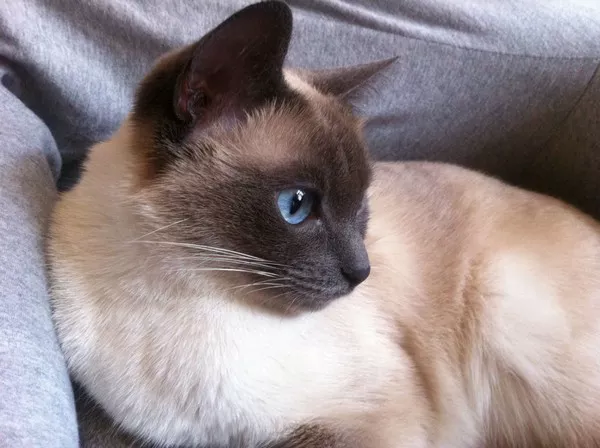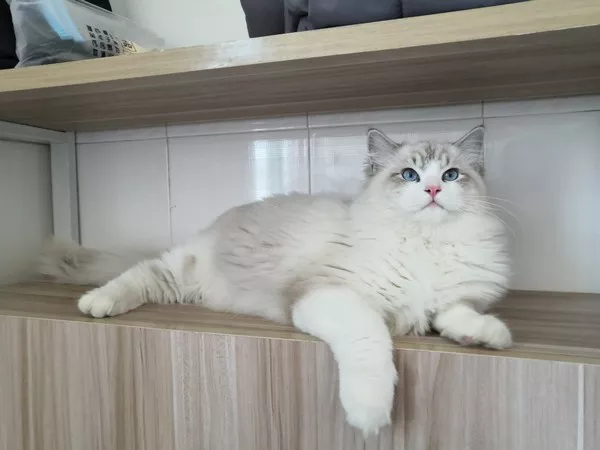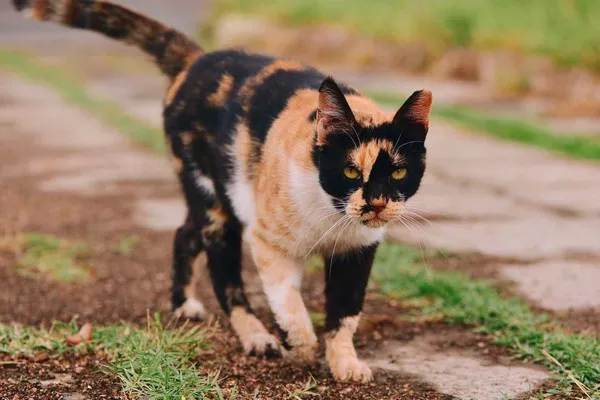After a decade as a veterinarian, I’ve got a bit of a routine when it comes to walking into an exam room. By the time I’ve opened the door, my technician has already taken a history, performed a preliminary examination, and told me the primary concerns that bring a feline in to see me. This helps me more efficiently diagnose a problem and determine what questions I need to ask.
Because our cat friends can’t talk, I rely heavily on a cat parent’s observations and words to help me define a problem and determine a course of action. Many people, nervous about their cat’s condition and worried about being seen as a bother, answer the questions I pose but don’t ask any of their own. I love when pet parents ask questions! I see it as a vital form of communication, by helping me appreciate pet parents’ concerns and ensuring they leave the clinic with all of their needs met.
Here are ten questions I wish more cat parents would ask:
1. Can I schedule this appointment at a quiet time?
Absolutely, asking whether you can schedule the appointment during a quieter time is a great idea. This shows that you are considerate of your cat’s comfort and stress levels. Many veterinary clinics have busy periods that can be overwhelming for cats, so scheduling during a quieter time can help reduce stress for your cat and make the visit more pleasant for everyone involved. It’s a proactive approach to ensuring your cat has a positive experience at the vet.
2. Is my cat a good weight?
Asking about your cat’s weight is an important question that demonstrates your concern for their overall health. Veterinarians appreciate when pet owners take an interest in their cat’s weight because maintaining a healthy weight is crucial for a cat’s well-being. Your vet can provide you with information about what constitutes a healthy weight range for your specific cat’s age, breed, and size. They can also offer advice on managing your cat’s weight through proper diet and exercise to prevent health issues like obesity.
See Also: Keep Your Cat at a Healthy Weight: Essential Tips
3. What food should I feed my cat?
This question shows that you’re invested in providing the best nutrition for your cat. Asking about the appropriate food for your cat’s specific needs is a crucial conversation to have with your veterinarian. They can recommend a balanced diet that takes into account your cat’s age, activity level, health conditions, and any dietary restrictions. They might also suggest whether dry or wet food is better for your cat and whether there are any specific brands or ingredients to prioritize. This discussion can help ensure your cat receives the proper nutrients to maintain optimal health and energy levels.
See Also: What Human Food Do Cats Like: Things You Need to Know
4. Should I be concerned about this change in my cat?
Inquiring about changes in your cat’s behavior, appearance, or habits is a responsible and caring question to ask. Cats can’t communicate directly with us about their health, so noticing and discussing changes with your veterinarian is crucial. Any sudden or significant changes in appetite, litter box habits, activity level, coat condition, or behavior could potentially indicate an underlying health issue. By bringing up these changes with your vet, you’re taking a proactive approach to address potential problems early and ensure your cat’s well-being.
See Also: Why Is My Cat Pooping Outside the Litter Box & How to Stop It
5. Is there anything I can do for marking behavior?
Asking about marking behavior demonstrates that you’re seeking solutions to behavioral issues that might be affecting your cat’s environment and well-being. Marking behavior, such as urine spraying, can be a concern for cat owners. Your veterinarian can provide valuable advice on potential reasons behind the behavior, whether they’re medical or behavioral, and recommend strategies to manage or mitigate marking behavior. This might include discussing spaying or neutering, environmental enrichment, litter box placement, and potential stressors that could be contributing to the behavior. Addressing marking behavior is important for both your cat’s happiness and your household harmony.
6. When can we schedule a dental cleaning?
Asking about scheduling a dental cleaning for your cat demonstrates your commitment to their oral health. Dental care is often overlooked but is essential for your cat’s overall well-being. Your veterinarian can assess your cat’s dental health during a check-up and recommend whether a dental cleaning is necessary. They can also provide information on the procedure itself, including the benefits, potential risks, and aftercare. Regular dental cleanings can prevent dental disease, which can impact your cat’s quality of life and overall health.
7. What vaccines are appropriate for my cat’s lifestyle?
Inquiring about the appropriate vaccines for your cat’s lifestyle is a responsible way to ensure their protection against preventable diseases. Different cats have different lifestyles, and their exposure to certain diseases can vary. Your veterinarian can recommend a tailored vaccination schedule based on factors like your cat’s age, indoor or outdoor status, potential exposure to other animals, and local disease prevalence. This conversation will help you make informed decisions about which vaccines are necessary and beneficial for your cat’s health and well-being.
See Also: Cat & Kitten Vaccination Schedule
8. Can I give this medication to my cat?
Asking about medication safety for your cat is a smart move, indicating that you prioritize your cat’s health and want to ensure they receive appropriate treatments. Before giving any medication to your cat, it’s essential to consult your veterinarian. Some human medications can be harmful or even deadly to cats, and dosages can vary significantly between species. If your cat requires medication, your vet can prescribe the correct type and dosage based on your cat’s individual needs, medical history, and any potential interactions with other medications. This prevents the risk of unintentional harm and ensures your cat gets the best possible care.
9. Can someone watch me give this treatment?
Asking whether someone can observe you giving a treatment to your cat is a thoughtful question, especially if the treatment involves any level of complexity or if your cat is particularly anxious around medical procedures. It’s an indication that you want to ensure you’re administering the treatment correctly and minimizing stress for your cat. Many veterinary clinics offer demonstration sessions or appointments where a veterinarian or technician can guide you through the proper way to give medications, apply treatments, or perform other care tasks. This hands-on guidance can boost your confidence and help you provide the best care for your cat at home.
10. When should I schedule a follow-up appointment?
Asking about scheduling a follow-up appointment demonstrates your commitment to your cat’s ongoing health and your desire to stay proactive in their care. After a veterinary visit, especially if your cat had an issue that needed attention, it’s a good idea to discuss when a follow-up appointment might be necessary. Your veterinarian can provide guidance on the appropriate timing based on the specific condition or treatment, ensuring that your cat’s progress is monitored and any necessary adjustments can be made to their care plan. Regular check-ins are crucial for catching any potential issues early and maintaining your cat’s well-being.



























